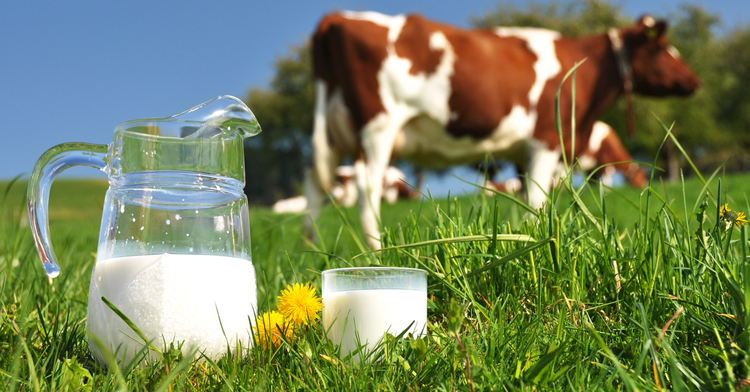Introduction
The dairy industry is one of the oldest and most stable sectors in agriculture. Milk, a staple in many diets around the world, provides numerous opportunities for profitability. Whether you are a farmer, entrepreneur, or small business owner, selling milk can be a highly lucrative venture. This article explores the various aspects of why selling milk is profitable, covering everything from market demand and health benefits to business strategies and financial considerations.
Market Demand for Milk
Global Consumption Trends
Milk is consumed globally, with significant demand in both developed and developing countries. The demand for dairy products is driven by their essential nutrients, including calcium, protein, and vitamins, which are crucial for growth and overall health.
- Population Growth: As the global population continues to rise, the demand for milk and dairy products also increases.
- Urbanization: Urban areas see higher consumption of milk due to increased income levels and changing dietary patterns.
- Health Awareness: There is a growing awareness of the health benefits associated with milk consumption, contributing to steady demand.
Diverse Consumer Base
Milk caters to a wide range of consumers, from infants to the elderly. This diverse consumer base ensures a constant and stable market.
- Children and Adolescents: Milk is essential for the growth and development of children.
- Adults: Many adults consume milk for its nutritional benefits.
- Elderly: Older adults often consume milk to maintain bone health.
Health Benefits of Milk
Nutritional Value
Milk is a rich source of essential nutrients, making it an important part of a balanced diet.
- Calcium: Essential for strong bones and teeth.
- Protein: Important for muscle growth and repair.
- Vitamins: Milk is fortified with vitamins D and A, which are crucial for overall health.
Health Benefits
Regular consumption of milk offers several health benefits:
- Bone Health: The calcium and vitamin D in milk help maintain bone density and reduce the risk of osteoporosis.
- Muscle Growth: The protein in milk supports muscle repair and growth.
- Heart Health: Some studies suggest that milk consumption may help lower blood pressure and reduce the risk of cardiovascular diseases.
Economic Factors
Cost of Production
The production of milk can be managed efficiently with proper planning and investment. Factors influencing the cost of production include:
- Feed and Nutrition: Quality feed and proper nutrition for dairy cows are essential for high milk yield.
- Veterinary Care: Regular health check-ups and vaccinations are necessary to maintain the health of dairy cows.
- Infrastructure: Investment in proper milking equipment and storage facilities ensures the quality and safety of milk.
Profit Margins
Selling milk offers attractive profit margins due to:
- High Demand: Consistent demand for milk ensures steady sales and revenue.
- Value-Added Products: Milk can be processed into various value-added products such as cheese, yogurt, and butter, which can significantly increase profit margins.
- Direct Sales: Farmers can increase profitability by selling milk directly to consumers or through farmer’s markets, reducing the middleman’s cut.
Business Strategies
Diversification
Diversifying your dairy business can help maximize profits and reduce risks.
- Value-Added Products: Process milk into cheese, yogurt, butter, and other dairy products.
- Organic Milk: Consider producing organic milk, which can be sold at a premium price.
- Niche Markets: Cater to specific consumer needs, such as lactose-free milk or milk enriched with additional nutrients.
Marketing and Branding
Effective marketing and branding can help establish a strong presence in the market.
- Brand Identity: Create a strong brand identity that emphasizes quality and health benefits.
- Digital Marketing: Use social media and online platforms to reach a wider audience.
- Customer Engagement: Engage with customers through promotions, loyalty programs, and educational campaigns about the benefits of milk.
Financial Considerations
Initial Investment
Starting a milk business requires an initial investment in infrastructure, livestock, and equipment. Key areas of investment include:
- Dairy Cows: Purchase high-quality dairy cows with good milk yield.
- Milking Equipment: Invest in modern milking machines to improve efficiency.
- Storage and Transportation: Ensure proper storage facilities and transportation methods to maintain milk quality.
Revenue Streams
A milk business can generate multiple revenue streams:
- Raw Milk Sales: Sell raw milk directly to consumers or local markets.
- Processed Products: Increase revenue by processing milk into various dairy products.
- Byproducts: Utilize byproducts such as whey and manure for additional income.
Financial Management
Effective financial management is crucial for the success of a milk business.
- Budgeting: Create a detailed budget to manage expenses and forecast revenue.
- Cost Control: Implement cost control measures to maximize profitability.
- Investment: Reinvest profits into the business to improve infrastructure and increase production.
Case Studies
Successful Milk Businesses
- Amul (India): Amul is one of the largest dairy cooperatives in India, known for its wide range of dairy products. The cooperative model ensures fair prices for farmers and consistent quality for consumers.
- Organic Valley (USA): Organic Valley is a cooperative of organic farmers in the United States. The company focuses on producing high-quality organic milk and dairy products, catering to health-conscious consumers.
Conclusion
Selling milk is a profitable business due to the high and consistent demand, the diverse consumer base, and the numerous health benefits associated with milk consumption. By implementing effective business strategies, diversifying products, and managing finances wisely, entrepreneurs can maximize their profits in the dairy industry. With careful planning and investment, the milk business can provide a stable and lucrative source of income.
Key Takeaways
- High Demand: Milk is a staple in many diets, ensuring consistent demand.
- Health Benefits: Milk offers numerous health benefits, making it an essential part of a balanced diet.
- Economic Viability: With efficient production and proper financial management, selling milk can be highly profitable.
- Business Strategies: Diversification and effective marketing can enhance profitability and market presence.
- Success Stories: Learning from successful milk businesses can provide valuable insights and inspiration.
By understanding these factors and implementing best practices, you can establish a successful and profitable milk business.
















